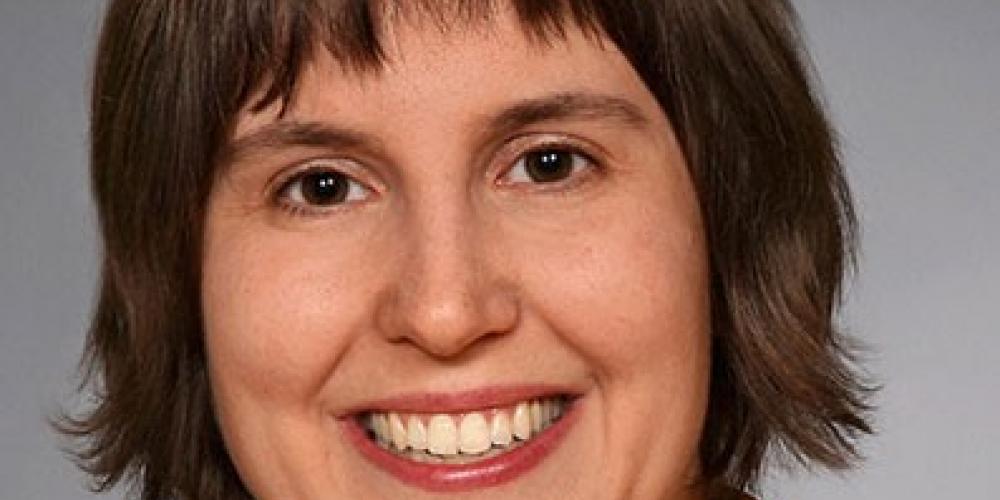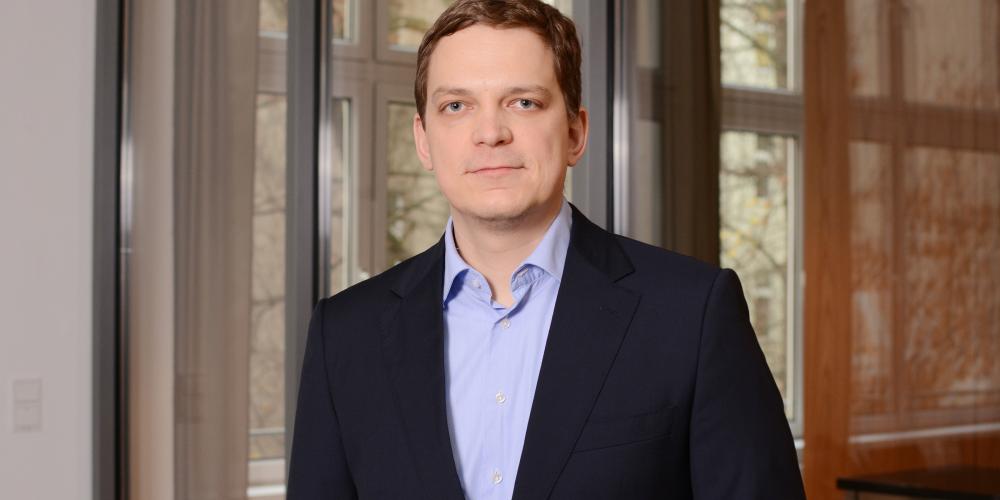Evaluation
PD Dr. Siddig is interested in studying the trade-offs and synergies between the production and use of water, energy, and food in developing countries as influenced by climate, population, and policy, including distributional, economic, and regional impacts.
Geographically, his research focuses on Africa and the Middle East. Methodologically, he relies largely on economy-wide simulation models, with CGE models leading the way (including ind GAMS and Gempack). In addition, Dr. Siddig works on capacity development in the area of database development and on policy simulation modeling in a development context.
-
Computable General Equilibrium (CGE) modeling and macroeconomic analysis in GAMS and Gempack
-
Social Accounting Matrix
-
Policy modeling
-
Development of training materials and training of groups and individuals
-
Mastery and experience in developing and training developers of social accounting matrices (SAMs) and GTAP-ready input-output tables (IOTs)
- Entwicklung und/oder Schulung von Entwicklern von SAMs und/oder IOTs für Sudan, Ägypten, Israel, Palästina, Benin, Kenia, Chile, Armenien und Nigeria
The research of Prof. Greifeneder and her team at the Chair of Information Behavior focuses on user research. She is particularly concerned with people’s search and user behavior when dealing with information or metadata both while using a traditional library as well as in fields such as digital libraries or research data. Key aspects of her work include the use of online survey methods and natural habitat research as well as securing the validity of data in a laboratory setting and in natural environments. Additionally, users’ private information sharing behavior and context research are central issues in Prof. Greifeneder’s research.
Prof. Greifeneder and her team employ qualitative and quantitative research methods of information science with a focus on user research. This includes survey design and implementation, both online and in the form of natural habitat research, interviews, case studies, experiments, scientific observation, focus groups and eyetracking. The Chair of Information Behavior boasts a modern research laboratory, the iLab:
- The iLab consists of two functionally differentiated rooms, connected with a door made of spyglass, that contain mobile desks (height can be adjusted electronically), swivel chairs, mobile partition walls, magnetic glass boards and a facilitator’s toolbox
- Technical equipment: beamer, cameras, microphones, mobile sound recorders, tablets, notebooks, smart watches and eye-trackers
Accor Hotels Germany
SHS VIVEON realisation of training for interviewers
International executive headhunting company: development of customised personality test
Prof. Ziegler's expertise and that of his team lies in the field of psychological diagnostics and deals with all topics of personnel diagnostics in the HR life cycle. They focus on personality, intelligence and situational awareness. Ziegler and his team develop solutions to measure these in relation to requirements and to use them for performance or learning prediction. Therefore they use the full range of qualitative (e.g. interviews) and quantitative methods (e.g. tests, questionnaires, machine learning).
Prof. Ziegler has already carried out several successful projects with well-known companies in this area, involving the creation of competency models, employee surveys, annual appraisals or job aptitude diagnostics. Prof. Ziegler's working group also trains individuals or teams on topics of personnel diagnostics (e.g. assessment centers or interviews). In addition, Prof. Ziegler develops customized diagnostic processes or evaluates them.
- PC lab with 10 workstations and various performance and personality tests
- Online surveys
- Data analysis
- Consulting
- Trainings - wide range of topics
-
Competence model development - Prof. Ziegler and his team have developed competence models for different professions for various clients and made them measurable
-
Accor Hotellerie Deutschland GmbH: Development of competence models
-
SHS VIVEON AG: Implementation of interviewer trainings
-
International headhunting company for executives: Development of a customized personality test
-
Evaluation and optimization - In these projects Prof. Ziegler looks at existing personnel processes, evaluates their quality from a psychological point of view and develops optimizations.
ARGE Ansiedlungsmanagement Friedrichshain-Kreuzberg (c/o Friedrichshain-Kreuzberger Unternehmerverein e.V.), Wüstenrot Foundation, Senator of Economic Affairs, Labour and Ports, Bremen, Bayerische Motorenwerke AG (BMW)
Prof. Helbrecht focusses her research on the cultural, social and spatial development of cities. She investigates urban branding, city image and identity as well as the marketing thereof. Neighbourhood and urban development policies, urban governance, housing markets and demographic change are also topics of her research. Furthermore, Prof. Helbrecht conducts analyses of social space and studies concerning the public sphere and space. As the director of the Georg-Simmel-Centre for Metropolitan Studies (Georg-Simmel-Zentrums für Metropolenforschung / GSZ), platform for interdisciplinary urban research, and as a member of the Integrative Research Institute on Transformations of Human-Environment Systems (IRI THESys) Prof. Helbrecht is well connected in her field of expertise and prepared for interdisciplinary research projects.
- ARGE Ansiedlungsmanagement Friedrichshain-Kreuzberg (c/o Friedrichshain-Kreuzberger Unternehmerverein e.V.): scientific accompanying research on conflicts concerning commercial asset management of the night-economy in Kreuzberg
- Wüstenrot Foundation: „Wohneigentum in Europa“ - Analysis of residential property in Europe and of the factors influencing home ownership quotas in cooperation with the ifo Institute (Leibniz Institute for Economic Research at the University of Munich)
- Senator of Economic Affairs, Labour and Ports, Bremen: „Engpassfaktor Humankapital: Strategien der Bremer Wirtschaftsförderung zur Attraktion von Hochqualifizierten als Standortvoraussetzung der High-Tech-Industrie“ - Analysis of factors influencing (re-)location decisions of highly qualified professionals in a specific region for high-tech industry
- Bayerische Motorenwerke AG (BMW): „Der Kunstpark Ost: Wirtschaftliche und kulturelle Bedeutung für München“
- Georg-Simmel-Centre for Metropolitan Studies (Georg-Simmel-Zentrum für Metropolenforschung / GSZ): interdisciplinary platform for collaborative research for metropolitan studies. Its goal is to contribute fundamentally to future urban development, regionally and internationally. Main topics of this interdisciplinary approach are: urban change, the cultural base of and social momentum in cities, sustainable urban development, and internationalisation of urban studies
- IRI THESys - Integrative Research Institute on Transformations of Human-Environment Systems: the institute’s purpose is the interdisciplinary transformation research focusing on land use and use of resources, processes of urbanization in the 21st century, effects of climate change, as well as intra- and inter-generational environmental justice
University of Zurich, German Chamber of Commerce and Industry (Deutsche Industrie- und Handelskammer, DIHK)
Prof. von Hippel and her team researches adult education and further training, and especially lifelong learning processes in adult education. In this context, they investigate institutions of general and professional further education and vocational training. The team has three special research interests. The first focuses on target groups and participant research. Prof. Hippel investigates why people take part in further education and what motivates them. Furthermore, she studies how people participate in further education. A second field of interest is on organisational research. The team investigates, for example, how different providers of further education develop their organisational structure over time and what kinds of trainings they offer for special target groups. Programme research is the third area of Prof. Hippel’s research. In this unit, the team explores the mechanisms that determine the setting of topics and how professional planning in organisations of further education is enacted. Unlike in schools, further education is not restricted by a set curriculum, but nevertheless content has to be negotiated and agreed on by different players. Existing programmes of further education reflect the demand to date, different interests and anticipated needs and are thus of interest for Prof. von Hippel’s research. For the last 20 years, the department has built up its own archive of further education programmes of Berlin-Brandenburg (Weiterbildungsprogrammarchiv Berlin-Brandenburg). It contains the further education programmes of over 500 institutions, accessible to scientific research and teaching.
- group discussions, focus groups and product clinics in the adult and further education sector (innovative method of market analysis for a target group oriented planning of training programmes)
- contract research in the area of further education (group discussions, surveys based on questionnaires and interviews, programme analyses)
- training for those employed in adult and further education (e.g. lecturers, programme planners, HR)
- several institutions of further education, amongst others for the unit for academic further education of the University of Zurich, German Chamber of Commerce and Industry (Deutsche Industrie- und Handelskammer, DIHK) and public institutions of further education: implementation of product clinics with the aim of target group oriented planning of training programmes for further education
- direction of a German Research Foundation Project (Deutsche Forschungsgemeinschaft, DFG) on the subject of planning of continuing vocational training: realisation of case studies in big companies
- several projects funded by the German Federal Ministry of Education and Research(Bundesministerium für Bildung und Forschung, BMBF) related to social milieus and further education: training of further education providers
- in co-operation with large companies and further education providers: supervision of academic theses
Professor Voelkle is an expert in Quantitative Psychology. He and his team work on the development and adaptation of new assessment procedures, the statistical and mathematical modeling of psychological processes, the design of studies as well as the analysis and interpretation of empirical-psychological data. Special emphasis of the research conducted at professor Voelkle’s lab lies on the analysis of longitudinal data and evaluation research. Professor Voelkle and his team are often involved as consultants in research and development projects in the education and health sector. To improve applied empirical research in the social and life sciences, they have founded the Berlin Methods Group in 2017.
Powerful computers and access to all common statistical programs
- Health: Evaluation and statistical advice for psychological-medical research facilities and health insurance companies
- Education: Evaluation and statistical consulting for private and public project executing organisations
Prof. Haerdle’s main research interests are quantitative finance, esp. multivariate methods in banking and finance, dimension reduction techniques, and computational statistics. In his roles both as coordinator of the Collaborative Research Center “Economic Risk” (CRC 649) and director of the interdisciplinary Center for Applied Statistics and Economics (C.A.S.E.) he primarily investigates economic risks on a global scale. Prof. Haerdle’s research aims at facilitating the evaluation of such risks and to reduce uncertainty to improve economic actors’ decision-making.
Prof. Haerdle is Distinguished Visiting Professor Wang Yanan Institute for Studies in Economics (WISE) at Xiamen University, China, as well as director of the International Research Training Group “High Dimensional Non Stationary Time Series” (ITRG 1792). Among other distinctions he received the “Econometric Theory Multa Scripsit Award” in 2012.
- multivariate statistical analysis (factor analysis, cluster Analysis, etc.)
- portfolio optimisation
- risk management
- hedging
- pricing derivatives
- functional data analysis
- non- and semi-parametric methods
- data visualisation
- Ongoing cooperation with and lecturing for leading international financial institutions
- Center for Applied Statistics and Economics (C.A.S.E.): interdisciplinary research centre with the goal to analyze and solve current complex economic problems and those arising in related fields with the help of quantitative methods and computing. Its research subjects range from weather risk, aging societies, crime to property markets
- Collaborative Research Center “Economic Risk” (CRC 649): center of transdisciplinary research where insights from economics, mathematics and statistics converge to analyze economic risks and risk factors. The CRC offers an international platform for discussion of the latest research results and collaborations





